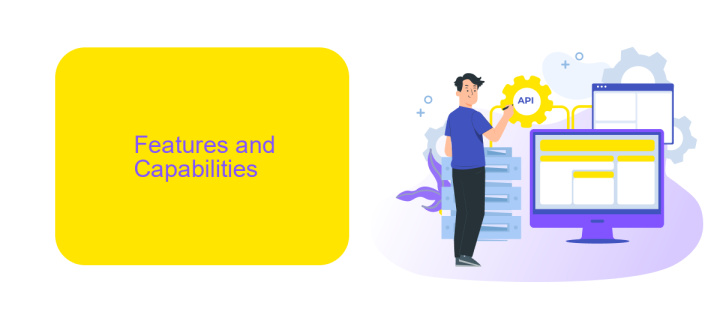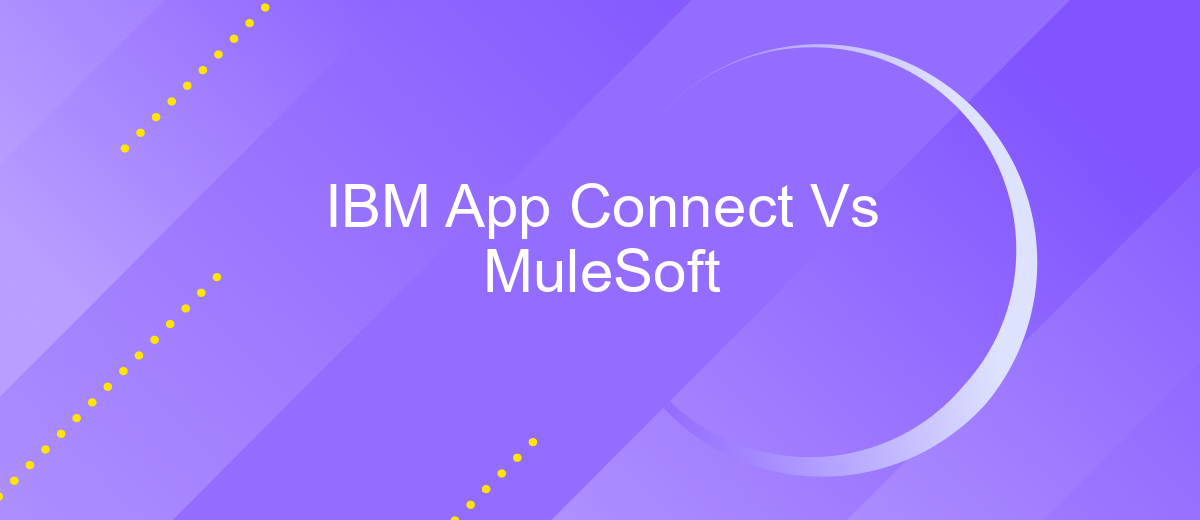IBM App Connect Vs MuleSoft
In today's rapidly evolving digital landscape, businesses need efficient integration solutions to streamline processes and enhance connectivity. IBM App Connect and MuleSoft are two leading platforms that offer robust integration capabilities. This article delves into a comparative analysis of IBM App Connect and MuleSoft, examining their features, benefits, and use cases to help organizations make informed decisions on which platform best suits their needs.
Introduction
In today's fast-paced business environment, seamless integration between various applications and systems is crucial for operational efficiency. Two leading solutions in this space are IBM App Connect and MuleSoft, both offering robust tools to connect disparate systems and automate workflows.
- IBM App Connect: Known for its user-friendly interface and powerful integration capabilities.
- MuleSoft: Renowned for its extensive API management and connectivity solutions.
Choosing the right integration platform can be challenging, as both IBM App Connect and MuleSoft offer unique features tailored to different business needs. Additionally, tools like ApiX-Drive can further simplify the integration process by providing a straightforward way to connect various applications without extensive coding. This article aims to compare these platforms to help you make an informed decision.
Features and Capabilities

IBM App Connect offers a robust suite of features designed to streamline integration processes. It provides a user-friendly interface with drag-and-drop capabilities, allowing users to effortlessly connect applications and data across various environments. The platform supports a wide range of connectors and pre-built templates, making it easy to integrate complex workflows without extensive coding knowledge. Additionally, IBM App Connect offers real-time monitoring and analytics, enabling users to track performance and quickly identify and resolve issues.
MuleSoft, on the other hand, is known for its comprehensive API management and integration capabilities. It offers a rich set of tools for designing, building, and managing APIs, facilitating seamless communication between different systems. MuleSoft's Anypoint Platform includes features such as data transformation, mapping, and orchestration, which are essential for complex enterprise integrations. Moreover, MuleSoft provides extensive support for cloud, on-premise, and hybrid environments, ensuring flexibility and scalability for businesses of all sizes. For users looking to simplify their integration processes, services like ApiX-Drive can complement these platforms by offering additional automation and connectivity options.
Integration Capabilities

When comparing IBM App Connect and MuleSoft, both platforms offer robust integration capabilities, yet they cater to slightly different needs and preferences. IBM App Connect is known for its user-friendly interface and pre-built connectors, making it easier for businesses to integrate applications without extensive coding knowledge. MuleSoft, on the other hand, provides a more comprehensive suite of tools for API management and a wider range of customization options, appealing to organizations with complex integration requirements.
- IBM App Connect: Offers a drag-and-drop interface, pre-built connectors, and AI-powered mapping to simplify integration processes.
- MuleSoft: Provides extensive API management tools, Anypoint Platform for designing, building, and managing APIs, and a wide range of customization capabilities.
- ApiX-Drive: Facilitates seamless integration between various applications and services, offering an intuitive interface and automated workflows to streamline business processes.
In conclusion, the choice between IBM App Connect and MuleSoft largely depends on the specific needs of your organization. IBM App Connect is ideal for those seeking simplicity and ease of use, while MuleSoft is better suited for businesses requiring advanced API management and customization. Additionally, tools like ApiX-Drive can further enhance integration capabilities by providing automated workflows and a user-friendly interface.
Benefits and Limitations

IBM App Connect and MuleSoft are both powerful integration platforms, each with its own set of benefits and limitations. IBM App Connect is known for its user-friendly interface and robust capabilities in connecting various applications and data across on-premises and cloud environments. MuleSoft, on the other hand, excels in providing a comprehensive API management solution and a strong developer community.
One of the key advantages of IBM App Connect is its ease of use, which allows business users to create integrations without extensive technical knowledge. MuleSoft offers a more flexible and scalable solution, making it suitable for complex enterprise-level integrations. Both platforms provide extensive documentation and support, ensuring users can effectively leverage their features.
- IBM App Connect: Easy to use, suitable for non-technical users
- MuleSoft: Comprehensive API management, scalable for enterprise needs
- Both: Strong support and documentation
- ApiX-Drive: Simplifies integration setup with user-friendly tools
While IBM App Connect is ideal for quick and straightforward integrations, MuleSoft's robust API management makes it a better choice for larger, more complex projects. Additionally, services like ApiX-Drive can further simplify the integration process, providing tools that enhance both platforms' capabilities.
Conclusion
In conclusion, both IBM App Connect and MuleSoft offer powerful tools for integration that cater to different business needs. IBM App Connect is known for its user-friendly interface and robust capabilities, making it a great choice for organizations looking for a seamless integration experience. On the other hand, MuleSoft stands out with its extensive API management features and flexibility, ideal for complex integrations and large-scale enterprise environments.
When choosing between these two platforms, consider the specific requirements of your business, such as ease of use, scalability, and the level of customization needed. Additionally, services like ApiX-Drive can further simplify the integration process by providing automated solutions and pre-configured connectors, enhancing the overall efficiency and effectiveness of your integration strategy. Ultimately, the right choice will depend on your unique integration needs and long-term business goals.
FAQ
What are the main differences between IBM App Connect and MuleSoft?
Which platform is more suitable for non-technical users?
How do these platforms handle API management?
Can these platforms integrate with cloud services?
What are the options for implementing automation and integration without extensive technical knowledge?
Do you want to achieve your goals in business, career and life faster and better? Do it with ApiX-Drive – a tool that will remove a significant part of the routine from workflows and free up additional time to achieve your goals. Test the capabilities of Apix-Drive for free – see for yourself the effectiveness of the tool.

